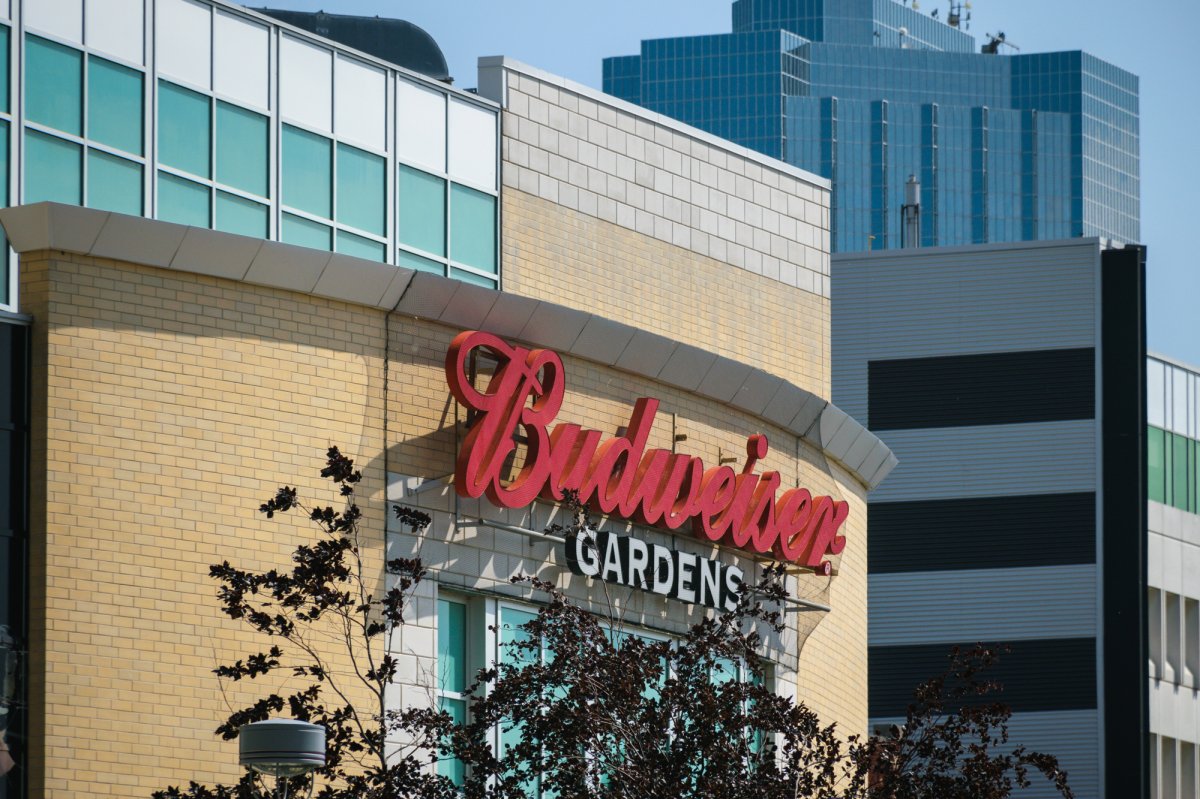Some London, Ont., politicians have approved financial considerations relating to the expansion and renovation of Budweiser Gardens, which, if council endorses the financing plan, could begin in the new year.

The report, from professional services firm KPMG, was presented to the corporate services committee (CSC) on Tuesday, outlining some specifics of the $33.3-million project’s return on investment (ROI) through detailed analysis.
According to the proposal, the project would be divided into two construction phases, the first estimated at around $15.1 million for “customer facing upgrades” and the second focused on “back of house” renovations costing $18.2 million.
Key elements of these phases are summarized as follows:
Phase 1
- Level 100 Club Lounge Expansion
- Level 100 Multipurpose Event Space Expansion
- Level 100 Knights Locker Room Renovation
- Level 200 Private Suites and Corridors Refresh
- Level 200 East Bowl Loges
- General Food and Beverage Concessions Upgrades
- General Audio/Visual and Technology Upgrade
Phase 2
- Level 100 Multipurpose Event Space Expansion
- Level 100 Office Renovation
- Level 200 Backstage Club/Kitchen
- Level 200 Administrative Office Expansion & Refresh
- Level 300 Feature Bar at North Concourse
- General Audio/Visual and Technology Upgrades
“Throughout the last 20 years, Budweiser Gardens has always strived to meet the needs of the community through diverse programming while also standing as a landmark of civic pride and community accessibility, tourism, promoting a sense of vibrancy and culture while also providing a wide range of public sports and entertainment,” the report read.
“However, to continue attracting world-class events and musical superstars, a renovation that will upgrade amenities and technology to meet today’s standards could be considered.”
As outlined to the committee, a cost-sharing partnership between OVG360, the venue operator for the arena, and the municipality would see the city cover 80 per cent of the total reinvestment.
Staff estimated that the city’s ROI would be around 15.3 per cent for Phase 1 and 4.9 per cent for Phase 2.
- Posters promoting ‘Steal From Loblaws Day’ are circulating. How did we get here?
- Solar eclipse eye damage: More than 160 cases reported in Ontario, Quebec
- Video shows Ontario police sharing Trudeau’s location with protester, investigation launched
- Investing tax refunds is low priority for Canadians amid high cost of living: poll
“Based on updated estimates incorporating KPMG’s observations, the expansion build and renovation is estimated to result in approximately $53 million of incremental cash flow for the City over the remaining term of the agreement,” the report said.
However, staff predicted that the city could exceed the projected ROI in the initial report.
“Civic admin engaged KPMG to review the ROI calculations and ensure that the work we had performed and the calculations that had been done were reasonable,” said Anna Lisa Barbon, deputy city manager of finance supports.
During the CSC meeting on Tuesday, Ward 6 Coun. Steve Trosow asked to see a recent KPMG report that says the city will receive an estimated $53 million from the arena over the next 30 years but was told the report is confidential.
He also raised a number of questions pertaining to a potential “overlap in the descriptions between Phase 1 and Phase 2” of the proposal, and asked for clarification on the details of the upgrades planned for concession stands and locker rooms.
Barbon said most of the specific information would be for council presentation and that “detailed questions about the actual proposal would best be answered through OVG360.”
During the meeting, Brian Ohl, general manager of Budweiser Gardens, was given delegation status and provided some comments in relation to Trosow’s questions to staff.
“For the London Knights dressing room, our intention was to bring that space allocation and make it like a typical OHL dressing room, which is one of the things in our agreement with the city is we’ve got to provide a venue that is at a certain level in the OHL (which) we have fallen behind in,” he said. “We were looking to get space for them, which would include carpets, walls, doors, electrical plumbing, etc.”
In regard to upgrades pertaining to food and drink concession stands, Ohl said they’re looking to adopt a “grab-and-go” concept.
“One, it makes service times quicker, and the second thing is it increases revenues, which are both important things for us,” he said.
However, Trosow put forward a motion to defer action on Phase 1 of the project to the 2024-27 multi-year budget, citing that Phase 2 had already been deferred. The motion did not pass.
“I believe there is a lot of overlap between the phases that I believe still needs to be addressed,” he said. “One thing’s for sure, in terms of costs and revenues, if we go ahead with this, we are going to have the debt service.”
According to the report, “based on current indicative pricing at the time of writing, annual debt servicing costs are estimated to be in the range of $700,000 (on a 20-year term) to $1,200,000 (on a 10-year term) per year.”
Staff noted that “rates are subject to change until such time that the City formally issues the debt.”
“Issuing on a 10-year term has the advantage of lower total borrowing costs and earlier retirement of the debt,” the report said. “The benefit of a 20-year term is that it utilizes a smaller portion of the City’s annual Municipal Accommodation Tax (MAT) revenues, providing greater capacity to fund other initiatives as well.”
Trosow said that while the dept services “might be offset, that is still certainly a cost.”
However, Mayor Josh Morgan said the reason why he doesn’t have a problem proceeding with Phase 1 is because “it contains all of the investments that essentially are going to drive more revenue.”
“I’m comfortable with the source of financing that our staff have recommended,” he said. “I’m also comfortable with the phasing being predominantly front-ending a majority of the revenue drivers within the proposal. Ultimately, that benefits all of the partners to try to drive additional revenue through the changes, to the orientation of the food services, as well as the expansion of the premium seating.”
Ward 4 Coun. Susan Stevenson added similar sentiments, saying her decision on financing the plan was “going to be an easy yes.”
“We got an anticipated projection of an additional $53 million coming back, aligning with our strategic plan of being a destination and a regional centre and promoting culture and tourism. And as Coun. Franke said, there’s some fun in the city too. We could really use it,” she said.
The committee voted 4-1 to approve the considerations of the report.
A bylaw to authorize and approve an amending agreement as outlined in a portion of the report will go to municipal council on Oct. 17.








Comments